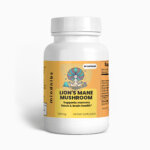
“Boosting Your Metabolism Naturally: What Science Says”
Have you ever struggled with losing weight despite your efforts to exercise and eat healthy? It could be that your metabolism is working against you. Many people think they have a slow metabolism, but the truth is that there are several factors that can affect your metabolic rate. The good news is that there are natural ways to boost your metabolism without resorting to expensive supplements or crash diets. In this article, we’ll explore the science behind metabolism and share some tips on how you can give your metabolism a natural boost. Get ready to rev up your engine and watch the pounds melt away!

1. Introduction: Why Boosting Your Metabolism Naturally Matters
An efficient metabolism is a key element in weight management. A boosted metabolism implies that your body burns calories more efficiently. When you have a faster metabolism, it is easier to maintain or lose weight, even when you indulge in foods that are high in calories. Keeping your metabolism working at an optimal rate is crucially essential for overall well-being.
Boosting your metabolism is not only beneficial for weight loss but for energy levels too. When your body processes calories faster, it fuels the body with energy to keep you going throughout the day. A naturally boosted metabolism also ensures that you get enough oxygen and nutrients to your body’s vital organs. As a result, your body functions optimally, leading to an overall sense of well-being.
There are many practical things you can do to boost your metabolism naturally. Maintaining an active lifestyle and consuming a diet rich in whole foods can have a significant impact on your metabolism. Unprocessed or whole foods consist of natural nutrients and fibers that help the body burn calories more efficiently. Moreover, certain foods such as hot peppers, nuts, and green tea have a stimulating effect on your metabolism. Incorporating these foods into your diet can help speed up your metabolism in a healthy, natural way.
2. Understanding the Science Behind Metabolism and How It Affects Your Body
Metabolism refers to all the biochemical reactions that occur in your body, and it’s responsible for keeping you alive and healthy. This is because metabolism converts food into energy that the body can use, regulates your body temperature, and produces hormones. All these processes require energy, and that energy comes from calories.
The basal metabolic rate (BMR) is the number of calories your body burns when you’re at rest. Your BMR is influenced by several factors, including body composition, age, and gender. People with more muscle mass tend to have a higher BMR because muscle tissue burns more calories than fat tissue. On the other hand, as you age, your BMR decreases because muscle mass decreases and fat tissue increases. Women have a lower BMR than men because they have less muscle mass and more body fat.
Your metabolic rate is also affected by your diet, exercise habits, and genetics. Eating a healthy diet and staying active can increase your metabolism, while a sedentary lifestyle and consuming too many calories can slow it down. Moreover, some people have a genetic predisposition to a higher or lower metabolic rate. Although you can’t change your genetics, you can manage your lifestyle habits to optimize your metabolic health.
- Factors that affect your metabolism include:
- Your basal metabolic rate (BMR)
- Body composition
- Age
- Gender
- Diet and exercise habits
- Genetics
By understanding how your metabolism works and what factors affect it, you can make informed decisions regarding your diet and physical activity. Eating a healthy, balanced diet that provides your body with the nutrients it needs and staying active can help boost your metabolism, leading to improved overall health and well-being.
3. The Top 5 Proven Methods to Boost Your Metabolism Naturally
Boosting your metabolism is one of the best ways to achieve and maintain a healthy weight, increase energy levels, and improve overall health. Fortunately, there are several natural and proven methods that you can incorporate into your daily routine to achieve a faster metabolism.
- Consume more protein: Protein is vital for building and repairing muscles, which is critical in speeding up your metabolism. Additionally, protein digestion burns more calories than carbohydrates and fats, which can help you lose weight and boost your metabolism. Some excellent sources of protein include lean meats, fish, beans, and eggs.
- Drink plenty of water: Drinking water can help you feel fuller for longer periods, reducing your appetite and preventing overeating. Additionally, dehydration can slow down your metabolism, so staying hydrated is vital. It is recommended that you drink at least eight glasses of water every day.
- Incorporate strength training exercises: Strength training exercises increase muscle mass, which in turn improves metabolic rate. The more muscle mass you have, the more calories you burn, even when you’re resting. Incorporate resistance training exercises at least two to three times a week- you can use equipment or your body weight for resistance exercises.
In conclusion: Boosting your metabolism is a crucial component to achieving and maintaining a healthy lifestyle. Choosing natural and proven methods is an excellent way to achieve a faster metabolism. By incorporating these methods into your daily routine, you can improve your overall health and wellbeing while achieving your weight loss goals.
4. Why Eating a Well-Balanced Diet Is Key to a Healthy Metabolism
A well-balanced diet is the foundation to a healthy metabolism. The human body needs certain nutrients, vitamins, minerals, and macronutrients like fats, proteins, and carbohydrates to function, grow, and repair itself. A diet that is high in unhealthy fats, sugar, and salt, and low in essential nutrients not only leads to weight gain and chronic diseases but also slows down the metabolic rate. By incorporating a well-balanced diet into your daily routine, you can not only keep your weight in check but also improve your overall health and speed up your metabolism.
Here are some of the key components of a well-balanced diet:
– Lean protein: Protein-rich foods like chicken breast, fish, legumes, and eggs contribute to muscle growth and repair, which is essential for boosting metabolism. They also keep you full, reduce hunger cravings, and help the body burn more calories during digestion.
– Complex carbs: Unlike simple carbs that provide quick energy but often lead to insulin spikes and fatigue, complex carbs like whole grains, fruits, vegetables, and legumes provide a steady source of energy, fiber, and essential nutrients. They also keep the digestive system active and help the body burn calories.
– Healthy fats: While it’s important to limit unhealthy fats like trans and saturated fats, it’s equally important to include healthy fats like omega-3 fatty acids, which are found in fish, nuts, and seeds. Healthy fats help the body absorb essential nutrients, reduce inflammation, and promote brain health.
In conclusion, a well-balanced diet goes beyond just losing weight or fitting into a certain dress size. It’s about achieving optimal health, building a strong metabolism, and improving the quality of life. By making small changes to your diet, you can incorporate more nutrient-rich foods, reduce processed and junk foods, and enjoy a healthier, happier, and more energetic lifestyle.
5. The Importance of Regular Exercise and Physical Activity for Your Metabolism
Regular exercise and physical activity plays a crucial role in improving your metabolism. The process of metabolism refers to the chemical processes that take place in your body to convert food into energy. Physical activity and regular exercise can help boost metabolic rate and increase energy expenditure throughout the day. Here are some ways in which regular exercise and physical activity can improve your metabolism:
- Increase Muscle Mass: Regular exercise helps build muscle mass, which can increase metabolism even at rest. This is because muscle tissue burns more calories throughout the day compared to fat tissue.
- Improve Insulin Sensitivity: Physical activity and exercise can enhance insulin sensitivity. When insulin sensitivity is improved, your body can better regulate blood sugar levels, which can have a positive impact on overall metabolic health.
- Reduce Inflammation: Regular exercise and physical activity can also help reduce inflammation in the body, which is linked to several chronic conditions such as obesity, metabolic syndrome, and type 2 diabetes.
It’s important to note that the type and intensity of exercise can also impact your metabolism. High-intensity interval training (HIIT) and strength training are both effective ways to improve metabolism. Additionally, adding physical activity into your daily routine, such as taking the stairs instead of the elevator, can also have a positive impact on metabolic health.
In conclusion, regular exercise and physical activity play a vital role in promoting a healthy metabolism. Incorporating exercise into your weekly routine can help increase muscle mass, improve insulin sensitivity, and reduce inflammation – all of which can have significant benefits for overall health and wellness. So, if you’re looking to improve your metabolism, it’s time to lace up your sneakers and get moving!
6. How Getting Enough Sleep and Reducing Stress Can Boost Your Metabolism
Getting enough sleep and managing stress are crucial components in maintaining a healthy metabolism. Metabolism refers to the chemical process that occurs in our body to convert food into energy that powers various functions such as breathing, thinking, and moving. In order to keep our metabolism high, one must regularly incorporate enough hours of sleep, and effective stress management techniques.
Lack of sleep can have drastic effects on our metabolism. When we do not get enough sleep, our hormones related to appetite and satiety, such as ghrelin and leptin, get disrupted. This leads to overeating and unhealthy snacking, which negatively impacts our metabolism and overall health. Aim for seven to eight hours of sleep every night for optimal metabolism function.
Stress management is also crucial in maintaining a healthy metabolism. When we are stressed, our body produces cortisol, which impairs our ability to burn fat. This leads to weight gain and a slower metabolism. Incorporating meditation, yoga, or other relaxation techniques can alleviate stress and reduce cortisol levels, leading to a boost in metabolism. In conclusion, getting enough sleep and managing stress are simple yet effective ways to improve our metabolism, leading to better overall health and well-being.
7. Conclusion: Incorporating Natural Methods to Boost Your Metabolism for Optimal Health and Wellness
Incorporating natural methods to boost your metabolism should be a priority if you seek optimal health and wellness. Your diet, exercise routine, and lifestyle habits play a significant role in affecting your metabolism, and incorporating certain habits can make a noticeable difference in boosting your metabolism.
One of the best ways to increase your metabolic rate is by incorporating more physical activity into your routine. Activities such as running, cycling, and weightlifting can increase your metabolism for several hours following your workout. Additionally, strength training can help build muscle mass, which contributes to a higher metabolic rate.
Another natural way to boost your metabolism is by incorporating certain foods into your diet. Certain foods such as green tea, chili peppers, and protein-rich foods have been shown to increase metabolism. Additionally, consuming foods rich in fiber can aid in digestion, leading to a higher metabolic rate. Incorporating these simple lifestyle habits and dietary changes can go a long way in boosting your metabolism and promoting optimal health and wellness.
- Physical activity: Incorporate activities such as running, cycling, or weightlifting, which can increase metabolism for several hours after a workout session.
- Dietary changes: Incorporating foods such as green tea, chili peppers, protein-rich foods, and fiber-rich foods can aid in digestion and increase metabolism.
- Lifestyle habits: Making simple lifestyle changes such as getting enough sleep, staying hydrated, and reducing stress can also help boost your metabolism.
In conclusion, incorporating natural methods to boost your metabolism can contribute to optimal health and wellness. By making small lifestyle changes and incorporating certain foods and exercise routines, you can increase your metabolic rate and help your body function at optimal levels. It is important to remember that improving your metabolism requires consistency and dedication, but the benefits are worth it.
Overall, it’s clear that there is a strong scientific basis supporting the idea that you can boost your metabolism naturally. While every person is unique in the way that their body responds to metabolic tweaks, it’s well-worth trying to give your own energy levels a natural boost. Giving it a go could be as easy as changing up your diet or taking regular exercise, or it may require a more comprehensive approach – the choice is yours. Start transforming your metabolism today!

























